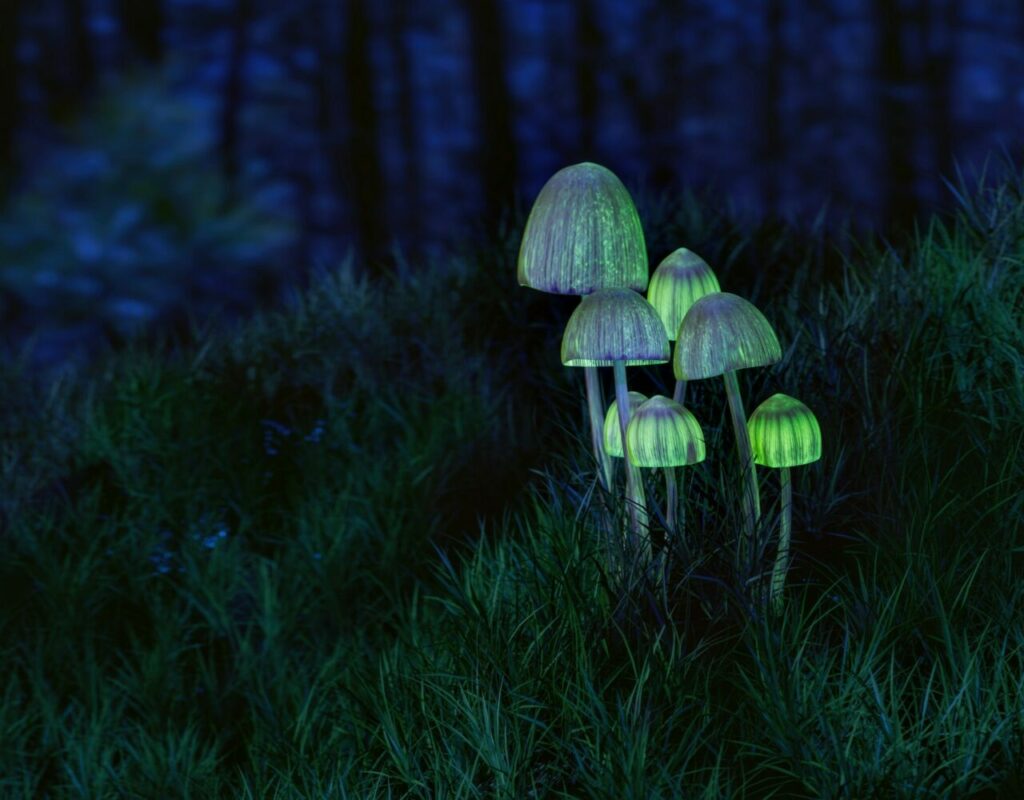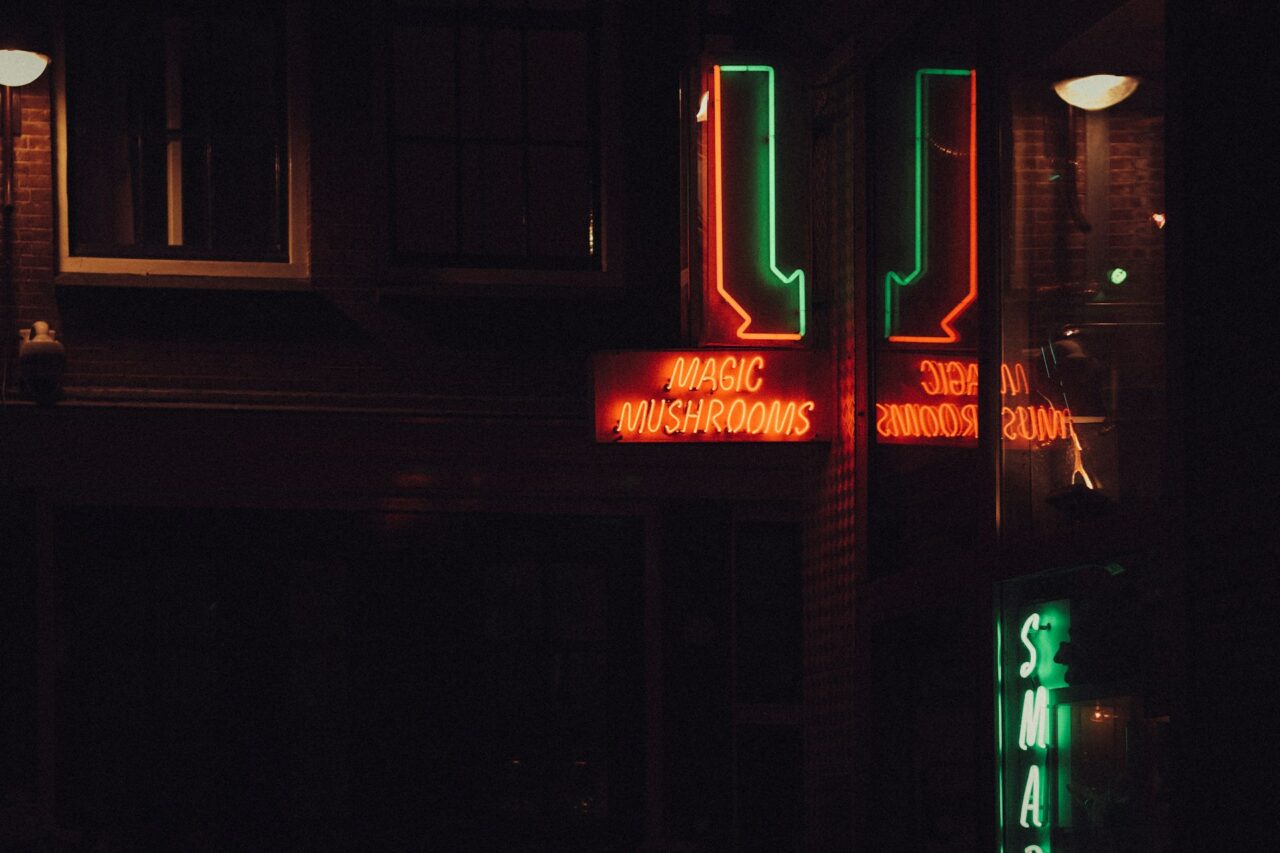The supremacy battle between the U.S. and Canadian dollars in the global exchange market mirrors the competition in the magic mushroom sector. The spread of online magic mushroom dispensaries in Vancouver and other cities is evident. However, the question remains: Can they keep up with America’s rapid advancement in the psychedelic domain? Let’s delve into this subject.
[toc]
Main Takeaways:
- Oregon was the pioneer state to legalize the therapeutic use of magic mushrooms, supervised by licensed practitioners.
- In 2020, Canada’s Health Minister authorized four terminally ill cancer patients to use magic mushrooms for palliative care.
- The University of British Columbia is conducting the Clairvoyant, a 24-week Phase 2 trial, to evaluate psilocybin-assisted therapy for adults diagnosed with alcohol abuse disorder.
The Rapid Growth of the Magic Mushroom Industry in the United States.
The magic mushroom industry in the U.S. has witnessed rapid growth, rivaling only cannabis. This swift progression manifests an increasing societal approval of the substance’s potential therapeutic benefits.
A Shift Towards Mental Health
Medical professionals are fascinated by the potential of magic mushrooms to alleviate symptoms of various mental health disorders, including depression, anxiety, and PTSD. Encouraging results from studies have prompted private pharmaceutical companies to research its medicinal properties.
This shift towards health care applications has not only sparked interest but also significantly boosted the economy. Startups and research projects are concentrating on the development of psilocybin.
There is a growing body of clinical evidence supporting the use of magic mushrooms in treating specific ailments. NIDA Director Nora Volkow underscored the emerging evidence that psychedelics have “considerable potential” in medical treatments.
Legal Milestones
- Oregon Measure 109: In 2020, Oregon set a precedent by legalizing psilocybin for therapeutic use, administered under the supervision of licensed practitioners. to dispense controlled dosages. This groundbreaking verdict initiated a pattern for other states to emulate.
- Many patients are seeking alternatives to conventional treatments. Psilocybin could possibly fulfill this demand, and mushroom dispensaries are tapping into this by making the substance more accessible.
- Most dispensaries prioritize harm reduction and education. They provide resources and knowledge about safe usage and potential impacts, thereby assisting individuals to better comprehend the substance and make informed decisions.
- Dispensaries provide more than just mushroom supplies. They also offer therapeutic support such as guided sessions, integration circles, and partnerships with mental health professionals.
- Jobs could be generated in sectors such as retail, customer service, and administration.
- Opportunities for cultivation, packaging, and distribution could widen.
- The city could establish itself as a prime destination for those seeking psychedelic experiences or therapeutic sessions.
- There could be an increase in local and provincial tax revenues.
- Some city organizations are setting up “compassion clubs” that offer safe and regulated environments for substance consumption.
- Efforts are underway at the community level, with local groups campaigning for the legalization of this substance. They are also exploring possibilities for initiating pilot programs and therapeutic uses.
Even with the slow acceptance of this substance in Canada, certain cities are becoming hubs for pioneering mental health solutions.
Paving the Way for Mental Health Care in Vancouver
The city is successfully addressing medical needs. Stores are responding to
There has been a noteworthy transformation in how the public views psychedelics, and how these substances could be utilized in the medical industry.
Ongoing Research Project
Clairvoyant is a 24-week, Multicenter, randomized, Double-Blind, Placebo-Controlled, Parallel-Group, Phase 2 Clinical Trial carried out at the University of British Columbia. This international research initiative is studying the effectiveness and safety of psilocybin-enhanced psychotherapy for adults with Alcohol Use Disorder.
Economic and Social Impact on Vancouver
While the therapeutic potential of psychoactive substances is often highlighted, their economic potential is also considerable. The rise of cannabis dispensaries on streets like West Broadway and Granville led to a surge of foreign investments in the economy. The acceptance and expansion of controlled substances could attract more investors and create job opportunities.
Economic Growth
As the city adopts more forward-thinking policies towards psilocybin, dispensaries could greatly contribute to economic expansion in numerous ways.
Fostering Social Awareness and Initiatives
Vancouver’s Magic Mushroom Dispensaries: A Psilocybin-Focused Community with Expertise
Every attempt, no matter how small, counts. The city’s approach focuses on mental health and community wellbeing rather than fast commercialization. Though the process of acceptance has been slow, there has been significant progress in recent years. Looking ahead, it is expected that more dispensaries will follow the Magic Mushrooms Montreal Canada’s example in facilitating easy and secure online mushroom purchases for all Canadians.
Answers to Frequently Asked Questions:
Are any mushroom strains limited for therapeutic purposes in Vancouver dispensaries?
There are no limitations on the types of mushrooms used for medicinal purposes. All strains available on the market are considered medicinal. To make an informed decision, consider researching online blogs about the most effective strain for your specific medical requirements.
Does the Vancouver Police Department focus on psilocybin usage?
The city hall and Vancouver Police Department acknowledge that psilocybin is primarily utilized for medicinal reasons. They admit their focus is more on serious criminals. Their goal is to arrest violent and organized criminals involved in trafficking dangerous opioids and those contributing to the health crisis caused by illicit drug fatalities.
Are Canada and the US the only countries allowing psilocybin usage?
As of 2024, specific psychedelics have been legalized or decriminalized in several regions, including parts of Central Africa, South Africa, Australia, the Bahamas, Brazil, the British Virgin Islands, the Czech Republic, Costa Rica, Israel, Jamaica, Mexico, Nepal, the Netherlands, Panama, Peru, Portugal, Samoa, Spain, and Switzerland.





